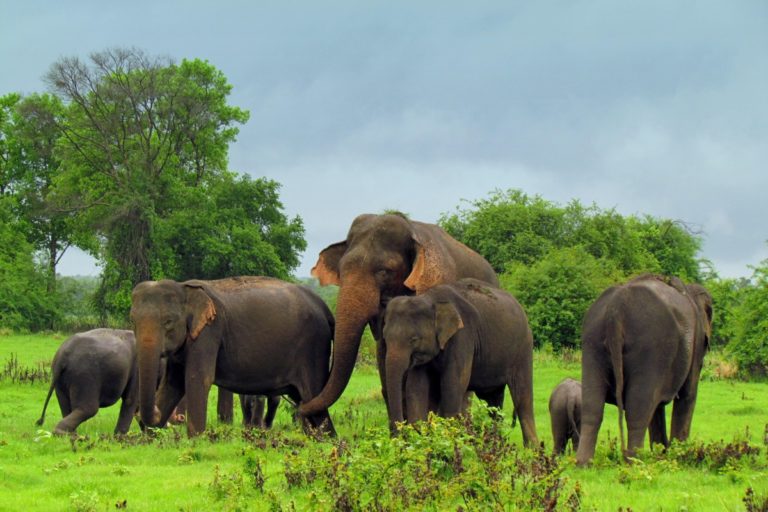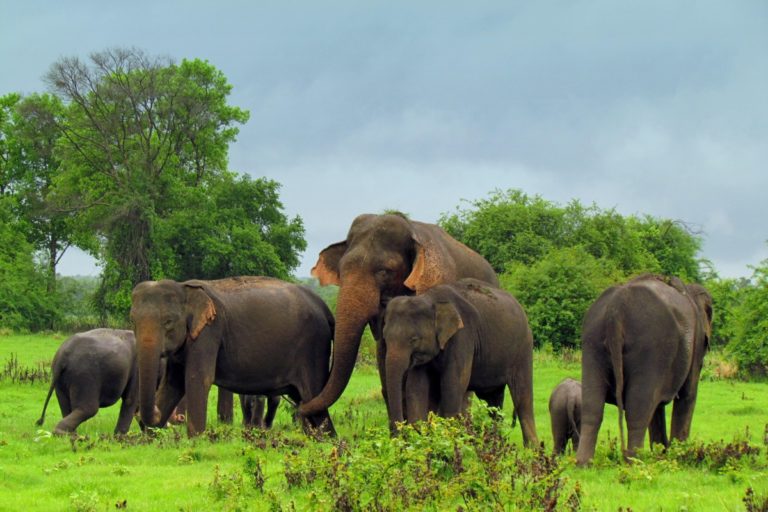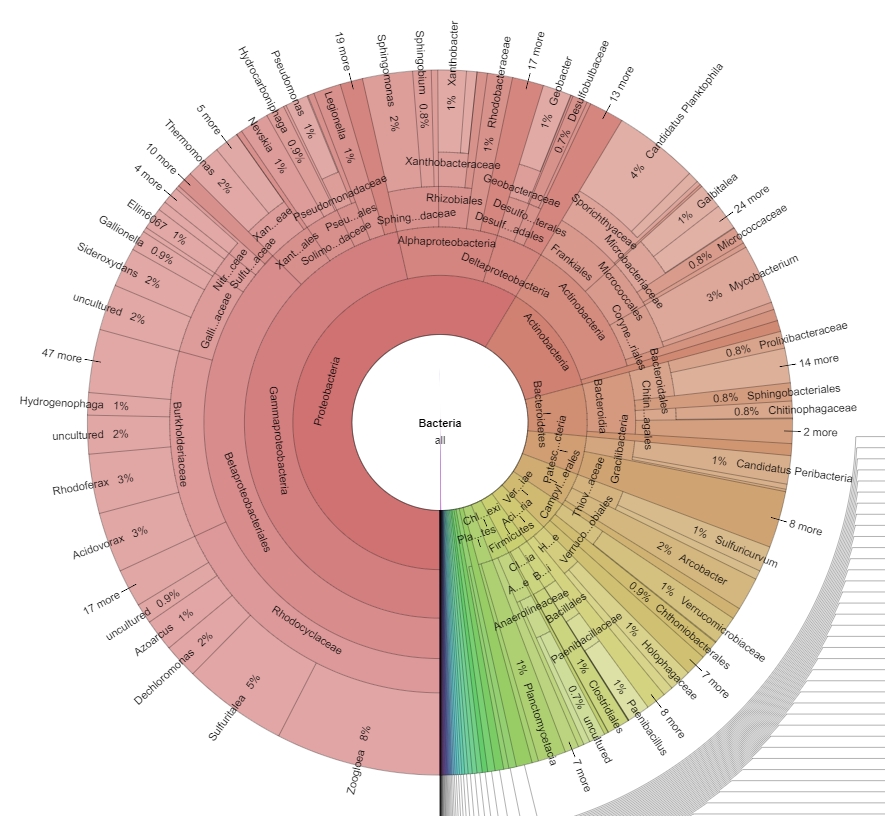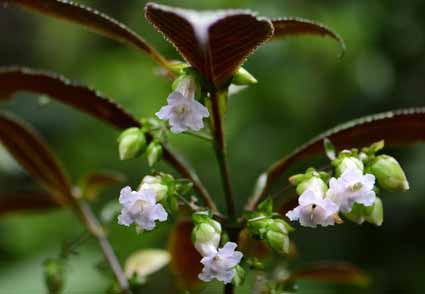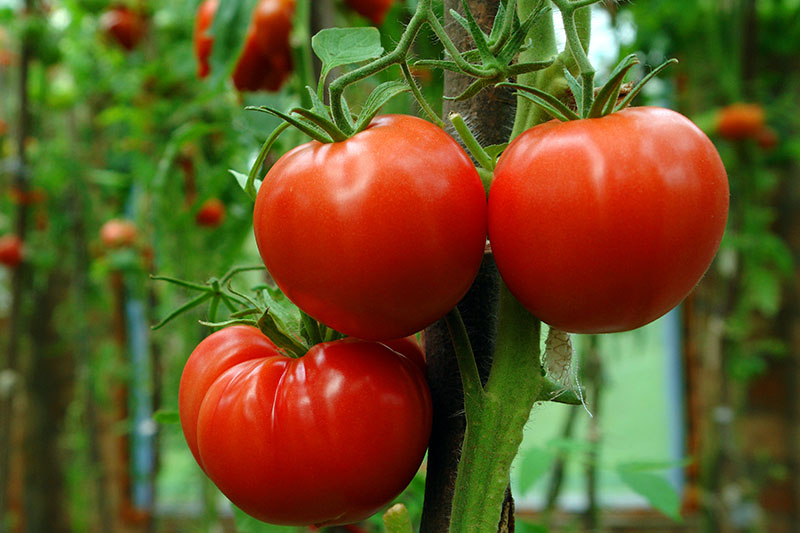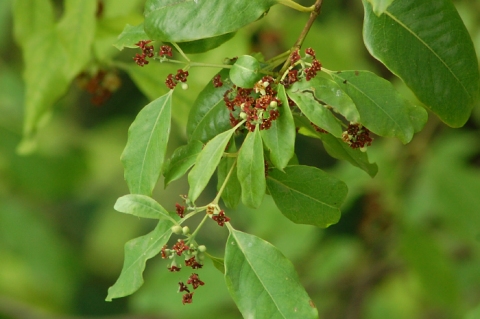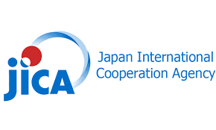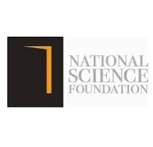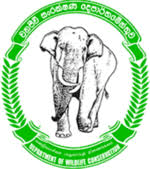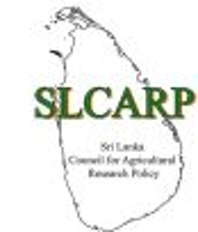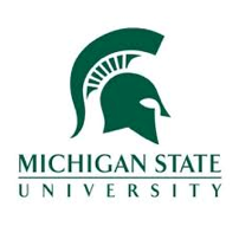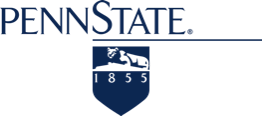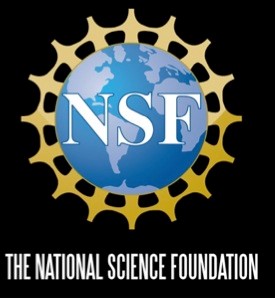.png)
Key Personnel: Ms Nathasha Naranpanawa, Mr Supun Bandusekara, Ms Nishadi Liyanage
Molecular and biochemical characterizations of Sri Lankan Cinnamon and their wild relatives and expression analysis of major biochemical genes under different environmental conditions and plant parts to enhance utilization value of cinnamon in Sri Lanka
Duration
Dec 2016 - Aug 2020
Funding Agency
National Science Foundation
Leader
Prof P.C.G. Bandaranayake
Investigators
Prof D.K.N.G. Pushpakumara Mr. G. Wijesinghe Dr. G.G. Jayasinghe Prof. W.L.W. Kumara
Cinnamomum zeylanicum (Cinnamomum verum), commonly known as Ceylon cinnamon or true cinnamon has gained recent attention due to scientific evidence on its health benefits and medicinal applications. Cinnamomum zeylanicum is endemic to Sri Lanka while seven wild Cinnamomum specie were also reported in the country. The first part of the study focused in morphological, yield and biochemical characterization of the largest C. zeylanicum germplasm in the world. Interestingly, more than 70% of bark and more than 90% of leaf samples did not have a detectable amount of harmful coumarin. The large-scale chemical fingerprinting work confirmed the superiority of Ceylon cinnamon. After a comprehensive analysis, 16 superior genotypes were identified as parental materials for immediate breeding attempts and or to release after mass propagation. Similarly, chemical fingerprints of wild Cinnamon species were confirmed, and potentially beneficial compounds were identified. Further, DNA barcoding, Next Generation skim sequencing, chloroplast genome sequencing was used to confirm the identity of Cinnamomum species in Sri Lanka. As such Ceylon cinnamon in Sri Lanka and India could be two different species. The first draft C. zeylanicum genome and complete transcriptome were assembled. Transcriptomics and metabolomics were used to assess the effect of the growing environment and harvesting maturity on the quality and quantity of bark and leaf yields. We also conducted several additional projects to fill the gaps in the literature and the industrial applications. Overall, our scientific data strongly support securing the “Ceylon cinnamon brand” in the world market and increasing production and productivity
SCI Journal and international journals
- Hathurusinghe, B. M., Pushpakumara, D. K. N. G., and Bandaranayake, P. C. Macroscopic and microscopic study on floral biology and pollination of Cinnamomum verum Blume (Sri Lankan). Plos one, 18(2), e0271938, (2023).
- Liyanage, N.M., Chandrasekara, B.C. and Bandaranayake, P.C., 2021. A CTAB protocol for obtaining high-quality total RNA from cinnamon (Cinnamomum zeylanicum Blume). 3 Biotech, 11(4), p.201.
- Chandrasekara, C.B., Naranpanawa, D.N.U., Bandusekara, B.S., Pushpakumara, D.K.N.G., Wijesundera, D.S.A. and Bandaranayake, P.C., 2021. Universal barcoding regions, rbc L, mat K and trn H-psb A do not discriminate Cinnamomum species in Sri Lanka. PLoS One, 16(2), p.e0245592.
- Liyanage, N.M.N., Bandusekara, B.S., Kanchanamala, R.W.M.K., Hathurusinghe, H.A.B.M., Dilhan, A.M.R.W.S., Pushpakumara, D.G., Samita, S., Wijesinghe, K.G.G., Jayasinghe, G.G., Liyanage, W.K. and Bandaranayake, P.C.G., 2021. Identification of superior Cinnamomum zeylanicum Blume germplasm for future true cinnamon breeding in the world. Journal of Food Composition and Analysis, 96, p.103747.
- Naranpanawa, D. N. U., Chandrasekara, C. H. W. M. R. B., Bandaranayake, P. C. G. and Bandaranayake, A. U. (2020). Raw transcriptomics data to gene specific SSRs: a validated free bioinformatics workflow for biologists. Scientific Reports. [online] 10(1). Available at:
- Liyanage, N. M. N., Ranawake, A. L. and Bandaranayake, P. C. G., (2020). Cross-pollination effects on morphological, molecular, and biochemical diversity of a selected cinnamon (Cinnamomum zeylanicum Blume) seedling population. Journal of Crop Improvement, pp. 1–17. doi: 10.1080/15427528.2020.1795769
Book chapters
- Bandaranayake, P.C.G. and Pushpakumara, D.K.N.G. (2020). Genetics and Molecular Characterization of Genus Cinnamomum. In: R. Senaratne and R. Pathirana, eds., Cinnamon Botany, Agronomy, Chemistry and Industrial Applications, 1st ed. Switzerland: Springer International Publishing, (in press)
- Abeysinghe, P.D., Bandaranayake, P.C.G. and Pathirana, R. (2020). Botany of Endemic Cinnamomum Species of Sri Lanka. In: R. Senaratne and R. Pathirana, eds., Cinnamon Botany, Agronomy, Chemistry and Industrial Applications, 1st ed. Switzerland: Springer International Publishing, (in press)
Local Journals
- Hathurusinghe, H. A. B. M., Bandusekara, B. S., Pushpakumar, D. K. N. G., Ranawaka, R. A. A. K., and Bandaranayake, P. C. G. Possibility of utilizing Inter Simple Sequence Repeat regions, bark powder morphology and floral morphometry to characterize the Cinnamomum species in Sri Lanka. Tropical Agricultural Research, 34(1), 65-79 (2023).
- Bandusekara, B.S., Pushpakumara, D.K.N.G. and Bandaranayake, P.C.G., 2023. Comparison of High-Performance Liquid Chromatography (HPLC) Profiles and Antimicrobial Activity of Different Cinnamomum Species in Sri Lanka. Tropical Agricultural Research, 34(2).
- Bandusekara, B.S., Pushpakumara, D.K.N.G., Bandaranayake, P.C.G., Wijesinghe, K.G.G. and Jayasinghe, G.G. (2020). Field Level Identification of Cinnamomum Species in Sri Lanka Using a Morphological Index. Tropical Agricultural Research, 31(4), pp. 43-53. DOI: http://doi.org/10.4038/tar.v31i4.8420
- Bandusekara, B.S., Pushpakumara, D.K.N.G., Bandaranayake, P.C.G. and Wijesinghe, K.G.G. (2018). Assessing the Quality of Planting Materials in Seed Originated Bush Type Cutting Sources: A Lesson from Cinnamon, Sri Lanka Journal of Agricultural Sciences, 55, pp. 19-29.
Extended abstracts
- Chandrasekara, C.H.W.M.R.B., Pushpakumara, D.K.N.G. and Bandaranayake, P.C.G. (2018). DNA extraction from Cinnamomum Zeylanicum, Cinnamon: A simple and efficient method. In: Proceedings of the 7th Young Scientist Forum. pp 22-25. Available at: http://www.nastec.gov.lk/files/ysf_proceeding/YSF_7th_Symposium_Proceedings_
- Naranpanawa, D., Bandaranayake, A. and Bandaranayake, P., (2018). A comparative study on the available matrices for quality assessment of a De novo transcriptome assembly. In: Proceedings of the 7th Young Scientist Forum. pp 94-98. Available at: http://www.nastec.gov.lk/files/ysf_proceeding/YSF_7th_Symposium_Proceedings_FINAL.pdf
- Bandusekara, B. S., Pushpakumara, D. K. N. G., Bandaranayake, P. C. G., and Wijesinghe, K. G. G., (2018). Development of Morphological Index for Field Level Identification of Cinnamon Verieties. In: SLCARP International Agriculture Research Symposium. Colombo, pp. 27
Abstracts
- Naranpanawa, D., Chandrasekara, C., Bandaranayake, P. and Bandaranayake, A. (2019). A complete pipeline of free bioinformatics tools for de novo transcriptome assembly and SSR primer design. In: Peradeniya University International Research Sessions, iPURSE. Peradeniya: University of Peradeniya, pp. 6
- Liyanage, N. M. N, Ranawake, A.L. and Bandaranayake, P.C.G. (2019). Morphological, Molecular and Biochemical Characterization of a Seedling Population from a Cross-Pollinated Mother Plant of Cinnamomum zeylanicum Blume (Cinnamon), In: Proceedings of the Peradeniya University Research Sessions, iPURSE. Peradeniya: University of Peradeniya, pp. 22-48
- Thilakarathne E.N.S, Wimalasiri, K.M.S. and Bandaranayake, P.C.G. (2019). Biochemical Characterization of Cinnamomum zelanicum Breeding Materials in Sri Lanka. In: Proceedings of the Faculty of Agriculture Undergraduate Research Symposium. Peradeniya: University of Peradeniya, pp. 54
- Madusanka W.D.M.L, Pushpakumara, D.KN.G., Bandaranayake, P.C.G. and Jayasinghe G.G. (2019). Morphological characterizationof Cinnamon (Cinnamomum zeylanicum Blume) germplasm in Sri Lanka. In: Proceedings of the Faculty of Agriculture Undergraduate Research Symposium. Peradeniya: University of Peradeniya, pp. 82
- Bandaranayake P. (2018). Molecular and biochemical characterizations of Sri Lankan Cinnamon and their wild relatives and expression analysis of major biochemical genes under different environmental conditions and plant parts to enhance utilization value of cinnamon in Sri Lanka, In: International Symposium on Agriculture and Environment. Colombo.
- Hathurusinghe, H. A. B. M. and P. C. G. Bandaranayake. (2018). Studying Unique Flowering Behaviour of Cinnamomum Zeylanicum: Examples from Two Elite Varieties. In: SLCARP International Agricultural Research Symposium, edited by Sri Lanka Council for Agricultural Research Policy SLCARP, Colombo, pp. 22
- Liyanage, N. M. N., Ranawake, A.L. and Bandaranayake, P.C.G. (2017). Genetic fingerprinting of seedlings from an open-pollinated mother plant of Cinnamomum zeylanicum Blume (Cinnamon). In: Tradmed International Symposium. Colombo, pp. 131
- Bandusekara, B. S., Pushpakumara, D. K. N. G., Bandaranayake, P. C. G. and Wijesinghe, K. G. G, (2017). Assessment of Genetic & Morphological Characterization of Variety Sri gamunu and Sri wijaya with their parents. In: Proceedings of the Faculty of Agriculture Undergraduate Research Symposium. Peradeniya: University of Peradeniya pp. 6
- Jayasiri, S.A.I., Wimalasiri, K.M.S. and Bandaranayake, P.C.G. (2017). Comparative Biochemical Analysis of Five Endemic Wild Cinnamomum Speices and Two Cultivated Varities of Cinnamomum Zeylanicum Blume. In: Proceedings of the Faculty of Agriculture Undergraduate Research Symposium. Peradeniya: University of Peradeniya, pp. 131
- Wicramasinghe, W.D.N., Wimalasiri, K.M.S. and Bandusekara, P.C.G. (2017). Evaluation of Biochemical and Antimicrobial Properties of Cinnamon (Cinnamomum zeylanicum) during Processing. In: Proceedings of the Faculty of Agriculture Undergraduate Research Symposium. Peradeniya: University of Peradeniya, pp. 153
